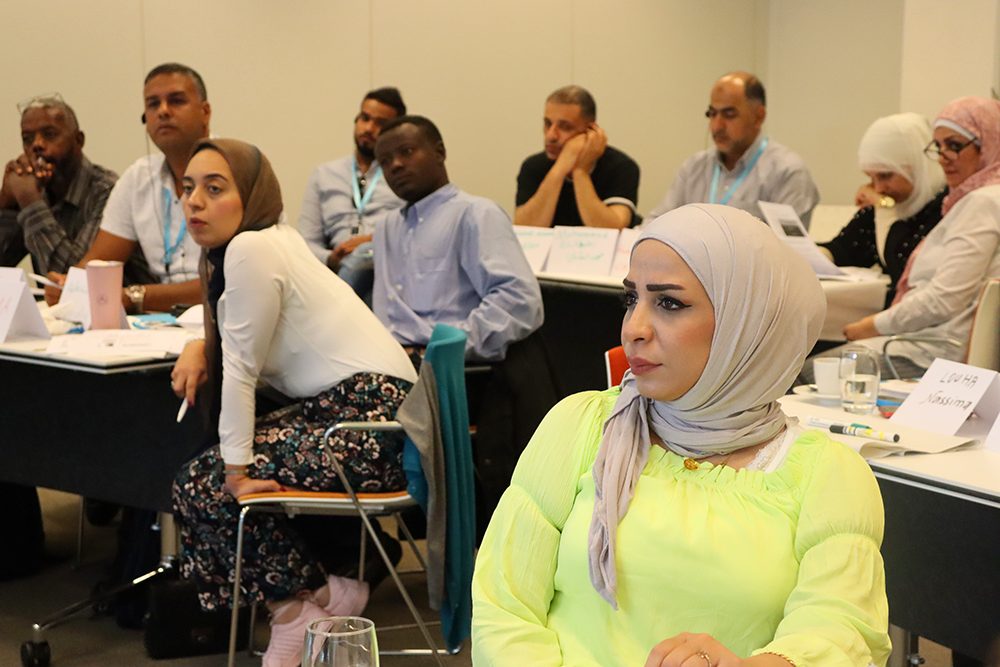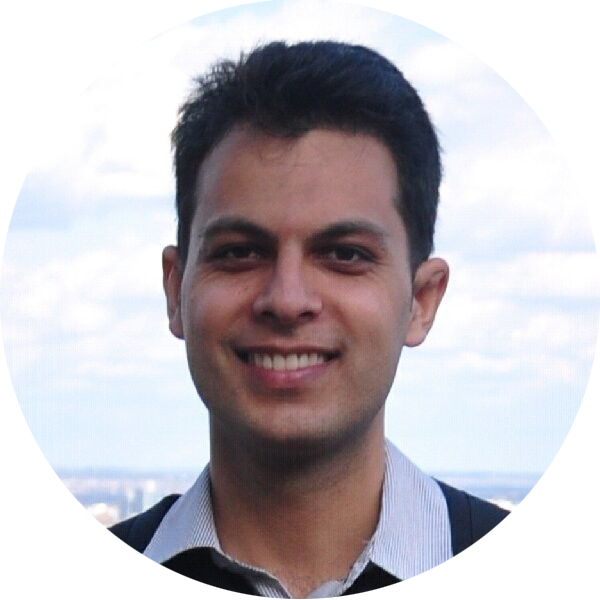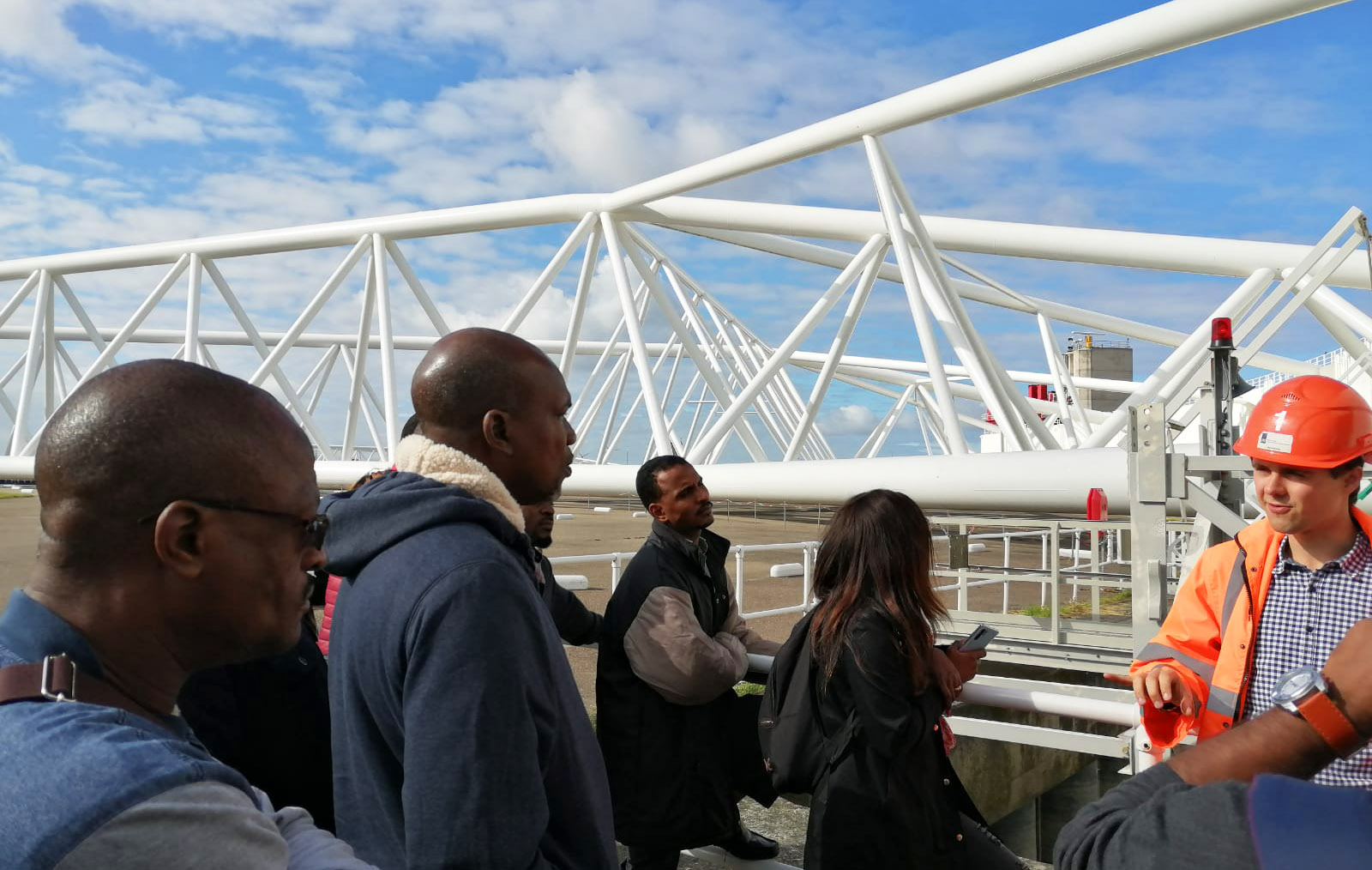What are the water governance challenges cities are facing today? Water provision and governance involve complex systems and the coordination of various stakeholders at all levels. With this in mind, participants from all over the world gathered in The Hague to attend two unique practice-oriented training courses. Leading international experts and practitioners provided unique insights into international best practices and tools.

As part of the Shiraka Programme, a Netherlands-MENA partnership initiated by the Dutch Ministry of Foreign Affairs and commissioned by the Netherlands Enterprise Agency (RVO), a group of 25 participants from 11 different countries in the MENA region followed a Water Management training. This two-week training is aimed at civil servants working in the field of water management to share their knowledge and skills enabling them to lead and inspire the modernisation of the water management sector in their home countries.
The course also aimed at strengthening participants’ ties with the Netherlands and the Dutch government. The first week of this training took place in the Netherlands, and it will be followed by a second week in Egypt.
”The purpose of the first part of the programme in The Netherlands, other than exploring theories and concepts, was for the participants to learn about Dutch practice in this field, and to discuss its potential application in the MENA region’s context. In addition, the participants had the opportunity to develop a valuable network with other civil servants in the region and in the Netherlands.” Dayana Al Alam, Programme Manager, The Hague Academy.
The government professionals explored the topic through interactive lectures and study visits to several Dutch institutions, including The World Horti Center, the Global Center on Adaptation, and the Dutch Water Authorities, Waternet.
 ”I am glad I had the opportunity to participate in the Shiraka programme in the Hague with fellow participants from countries like Iraq, Morocco, Jordan, Egypt, Tunisia, Palestine, Sudan and Algeria. The most interesting thing for me were the study visits to the World Horti Center and to the Global Center on Adaptation, which were great examples and inspiration on how to bring together governments, the private sector, civil society, and knowledge institutions.’’
”I am glad I had the opportunity to participate in the Shiraka programme in the Hague with fellow participants from countries like Iraq, Morocco, Jordan, Egypt, Tunisia, Palestine, Sudan and Algeria. The most interesting thing for me were the study visits to the World Horti Center and to the Global Center on Adaptation, which were great examples and inspiration on how to bring together governments, the private sector, civil society, and knowledge institutions.’’
Mojtaba Shafiei, Vice President for Research, East Water and Environmental Research Institute (EWERI), Iran.
The programme was organised together with Wageningen Environmental Research and the VNG International local office in Egypt.
After completing this first week of the Shiraka training, we convened our annual open course on Multilevel Water Governance. During this two-week training, the participants from all over the world gathered to discuss international best practices and water governance tools, under the guidance of leading international experts and practitioners.

The field visits focused on private-public cooperation and explored examples of Integrated Water Resource Management. Participants visited the Ministry of Infrastructure and Water Management in The Hague, the WUR Greenhouse Horticulture Station in Bleiswijk, and the Maeslantkering in the Nieuwe Waterweg, Participants also learnt first-hand about how to deal with high water levels, manage dikes, increase flood safety and address environmental concerns.
”We have been inspired and empowered, now we will go and do your best to involve others to achieve our visions’’ – Hassan Adeyemi Sanuth, Assistant Director, Ministry of Environment, Lagos State Government, Nigeria.
Related courses
We offer a diversity of courses throughout the year. Here are several other courses you might like.

